Greetings from Concepción, Chile!
I am having an absolute blast here in Chile. There was so much I didn’t know about this country before I arrived and while there is so much more I want to learn, I feel as though my brain has been rearranged by this trip.
First of all, there’s the whole experience of being in the southern hemisphere. For instance, I’m used to recognizing December 21 as the winter solstice aka the shortest day of the year. Well, that’s only true for the top half the globe. Although I crossed the equator when I was in the Navy and traveled all the way to Albany, Australia, the experience of being in the southern hemisphere didn’t really enter my consciousness. In Chile, there are constant reminders that one is an altogether different place.
Santiago is approximately the same distance from the equator as San Diego. Santiago, however, is sixty miles inland and sits in the center of a valley, surrounded by mountains on all sides—like Mexico City, but the mountains are much more imposing. One afternoon we drove 90 minutes and found ourselves 9,000 feet above sea level. We arrived in the middle of Santiago’s summer and the temperature was in the 60s in the mornings and evenings and rose as high as the upper 80s and low 90s during the day, making the plethora of Christmas decorations somewhat incongruous.
Chile is a very long and very skinny country with 4,000 miles of coastline. If you lay Chile on its side the southern tip would start at San Francisco and the northern limit would end in Philadelphia; yet Chile’s average width is just 112 miles.
It’s hard to get in and out of Chile under one’s own locomotion. There’s the Pacific Ocean to the west, the Atacama desert to the north and the Andes to the east—one of the highest mountain ranges in the world. To the south lies the literal end of the Americas. In the southernmost city, Punta Arenas, you are closer to Antarctica than you are to Santiago. These barriers make Chile geographically unique in that you’ll find animals and plants here you won’t find anywhere else in the world.
Santiago sits in the center of Chile and is a sprawling city filled with skyscrapers, apartment blocks, and historic buildings. It also has the most efficient, easy-to-use subway system I’ve ever experienced. By the end the week, I was an expert in getting around the city. The only drawback? It shuts down at 11pm every night, including weekends.
The subway’s efficiency extends to the bus systems—both the city’s bus system and the national, privately owned companies that ferry people around the country. It’s the only city I know where you can arrive at the airport, take a bus to the central station and from there go literally anywhere in the city—all for about three bucks.
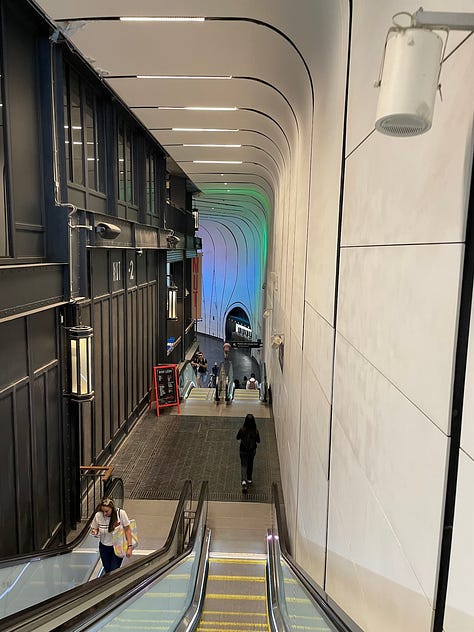

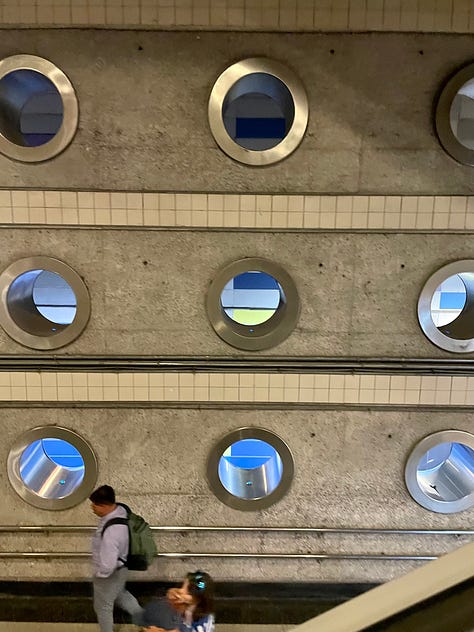

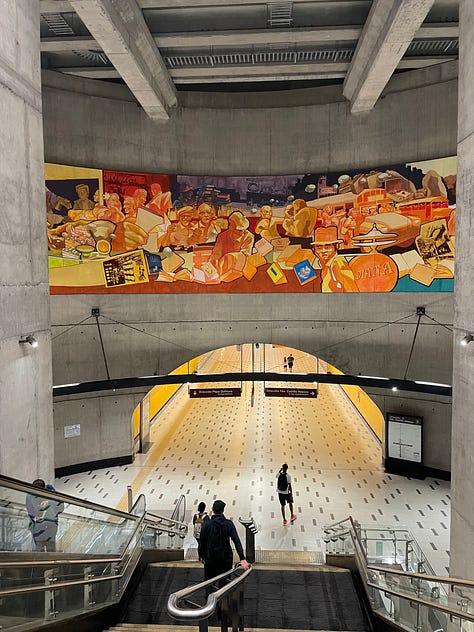
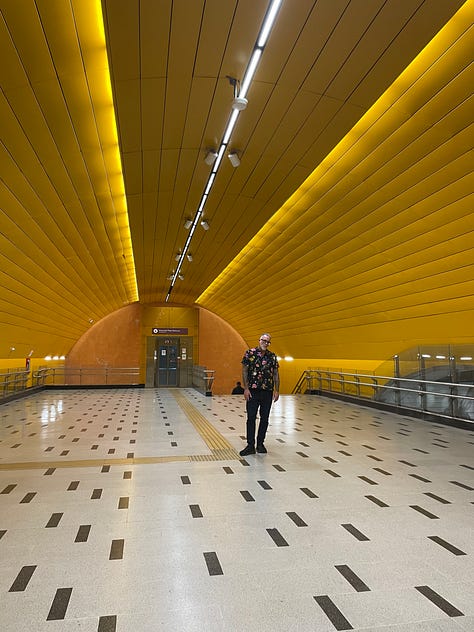
I don’t want to turn this into Fun Facts About Chile because a lot of the facts about Chile aren’t fun at all. This became immediately apparent when I visited The Museum of Memory and Human Rights, which is dedicated to educating the public about the horrific abuses of the Pinochet regime which lasted from September 11, 1973 until March 11, 1990. After the military coup, during which Pinochet deposed the democratically elected government and installed himself as leader of the nation, thousands of people were murdered, tortured, and disappeared. These crimes and their subsequent coverups have left a deep scar on the psyche of its people.
Obviously one can’t learn a comprehensive history of an event as traumatic as the dictatorship after a few hours in a museum, but my visit provided a framework for understanding the conversations I would have with people about what those years were like. For me, an outsider, this trauma can be felt in Chile’s literature, poetry, and songs of freedom and protest. Trying to make sense of it is impossible—like trying to reconcile the violence in Ukraine, Gaza or on the indigenous lands in the United States, but since this a newsletter about books and music and (and sometimes books about music), I’ll focus my attention there.
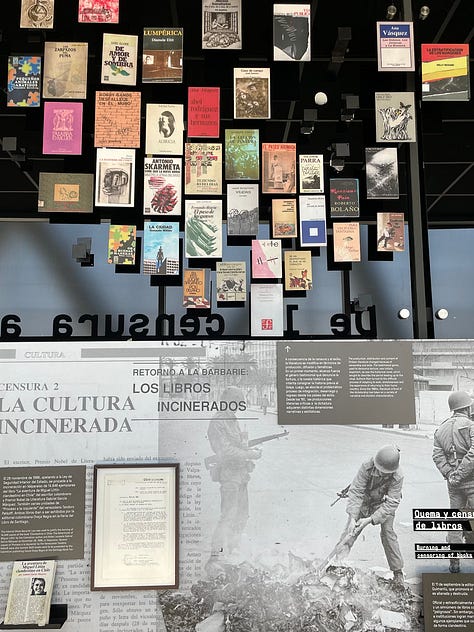
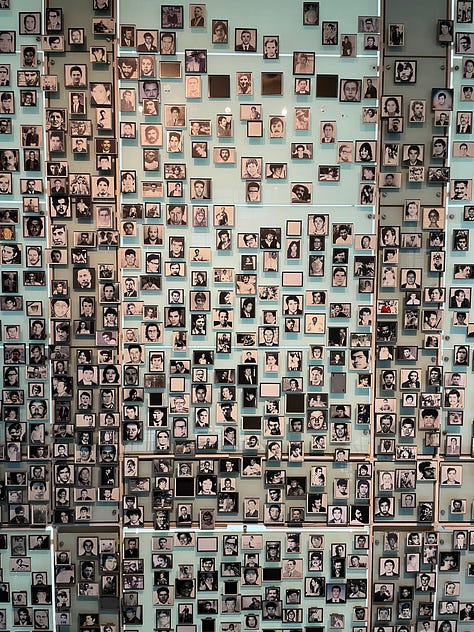
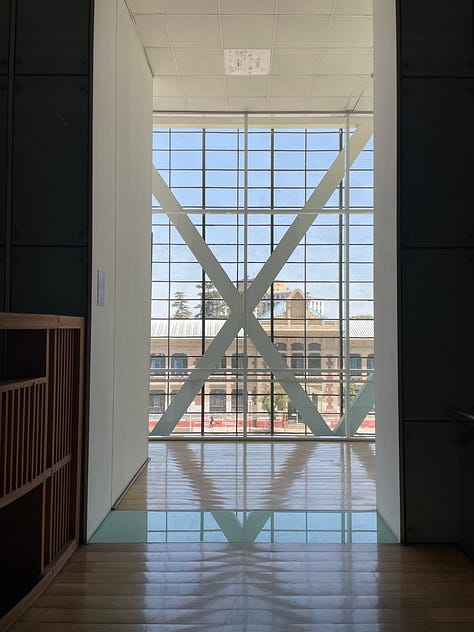

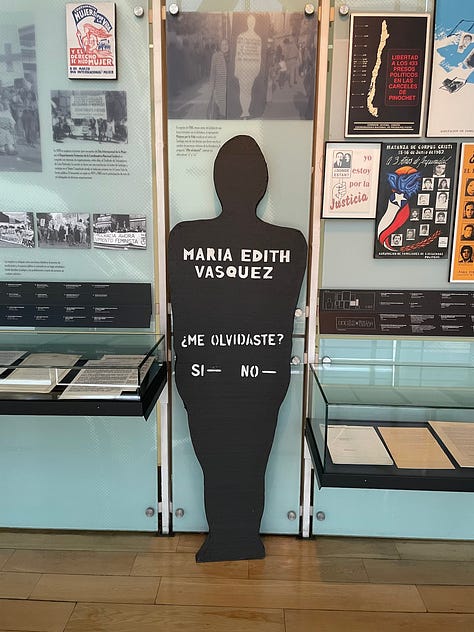
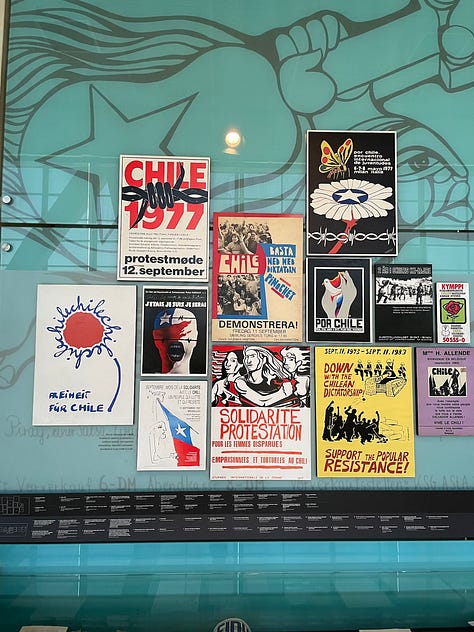
Haz Lo Que Quieras
Whenever we travel, Nuvia is always encouraging me to reach out to bookstores and let them know I’m in town. I usually don’t because the prospect of succeeding at wrangling an event in a bookstore in Mexico City, for example, a metropolis of millions where I only know a handful of people, is somehow worse than failing to do so.
However, Bad Religion played in Santiago earlier this month and after the show I kept seeing references to Haz Lo Que Quieras, the Spanish translation of the book I wrote with Bad Religion, popping up on Instagram. So I reached out to Emilio at Santiago-Ander Editorial, who reached out to Tana at Esqueleto Libros, who reached out to Francisco at Sonar FM and suddenly I had an event that was being hyped all over Santiago and beyond.
My first inkling that the word was getting out came when my friend Andrés—the author of last week’s guest post—told me that people he knew in Santiago’s punk scene were telling him about the event and not the other way around. We made a point of getting to the venue early and I started signing books an hour before the event officially started and didn’t let up until it was time to start the fun.
Francisco was the moderator, Nuvia “volunteered” to serve as translator, and I answered questions about the book and the band. We talked about my earliest experiences as a fan of Bad Religion (Back to the Known), the role of zines in the LA punk scene (Slash, Flipside), my favorite Bad Religion album (Suffer) and the punk band most deserving of a book (Descendents). Nuvia stole the show, as always, by making me sound smarter, funnier, and more concise than I actually am.
The fans were incredible. I was showered with gifts—stickers, books, etc.—and I signed so many books and took so many photos I lost count. It was a moving experience for many fans but none more so than me. Longtime readers will recall that Do What You Want was released the first summer of the pandemic in the heart of the lockdown and the many events the band had planned were shitcanned due to the coronavirus. I wasn’t able to celebrate the book the way I wanted and that was okay. I just put my head down and focused on Corporate Rock Sucks. I never thought that more than three years later this would happen:
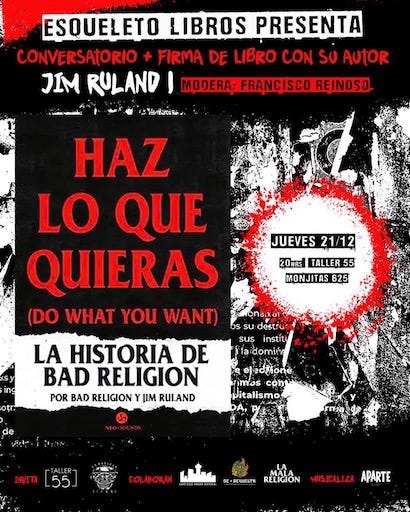
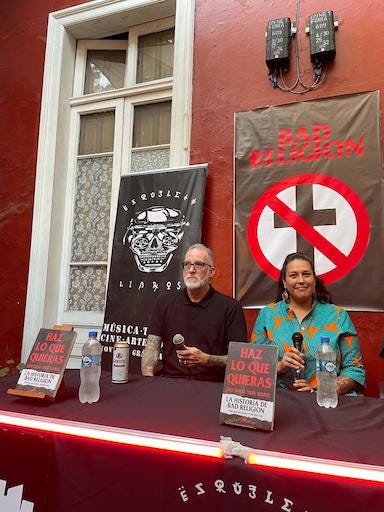

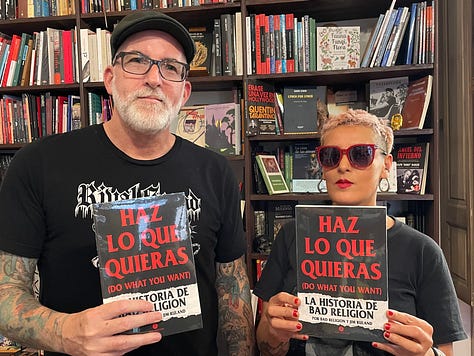
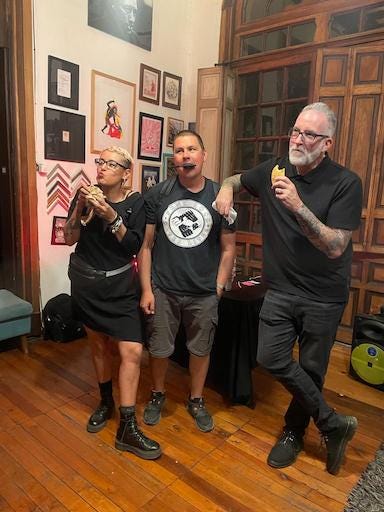
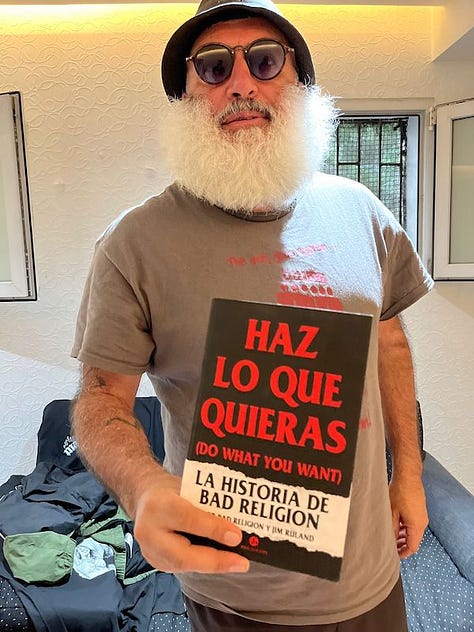
For a literal highlight reel, click here.
Libros sobre Chile
By Night in Chile by Roberto Bolaño and translated by Chris Andrews
I read this slim novella-length book about Chile the years before, during, and after the Pinochet dictatorship on my flight to Santiago. It’s the deathbed ruminations of Father Urrutia, a Catholic priest who found himself at the center of Santiago’s literary scene. It’s told in one long unbroken paragraph that dips in and out of the priest’s memories—kind of like Molly Bloom’s monologue at the end of Ulysses. As soon as I finished I wanted to start it over again, which I’ll do soon while my memories of Santiago are still fresh. Now that I have been to Chile and walked the streets of Santiago—just as I have walked the streets of Mexico City, Barcelona, and Blanes—I feel like I can read all of Bolaño all over again.
The Captain’s Verses by Pablo Neruda and translated by Donald D. Walsh
I’m not the biggest Neruda fan. I find his style to be too on the nose, too repetitive. Neruda is a huge part of Chile’s story—he won the Nobel prize in 1971 and was instrumental to Allende getting elected. He’s also problematic for his womanizing and the rape of a woman that he confessed to in his book, The Complete Memoirs, which was published after his death in 1974. Toward the end of his life he lived in Isla Negra, which is about a mile from Punta de Talca, where my friend Andrés lives, and it was interesting to read these poems while overlooking the same stretch of coast that Neruda did.
Clandestine in Chile: The Adventures of Miguel Littin by Gabriel Garcia Marquez and translated by Asa Zatz
This is an odd book. Technically, it’s a memoir by Littin as told to Marquez but since it was published in 1986 at the height of Marquez’s fame, his name gets top billing. It’s the fascinating story of Littin sneaking into the country under an assumed identity to make a movie about Chile under the Pinochet dictatorship twelve years after he’d been exiled. It’s a slender book and serves as a crash course on things to see and do in Chile that reads like a spy novel with actual life and death consequences. Strangely enough, I read the chapter on Concepción while I flew into the city. When the book came out in 1987, 15,000 copies were burned in Valparaiso. Thankfully, Littin is still alive and continued to make films.
In Quest of Candlelighters Kenneth Patchen
There are two kinds of people: those who know Kenneth Patchen is one of the greatest American writers of the twentieth century, and those who haven’t discovered him yet. This was originally published in 1972 by New Directions and contains the collection Panels for the Walls of Heaven, an early opening to his anti-novel Sleepers Awake (1946), his only short story “Angel-Carver Blues,” which was featured in the first New Directions anthology, and the collection They Keep Riding Down all the Time—all of which came out in 1946 and was written when Patchen was living in Greenwich Village. Patchen would injure his back and move out to Palo Alto at the request of his friend Kenneth Rexroth where the two of them were a huge influence on the burgeoning Beat Generation. But there’s no one like Kenneth Patchen.
I picked up this book at Cafebreria de Péndulo in Roma Norte and started my mornings in Santiago by leaving my phone behind at the hotel and taking Patchen with me to a café. That combination proved to be extremely inspiring and is something I want to try to replicate when I get home. On this trip I started a new notebook and filled it up with ideas, notes, and scenes for my work in progress. I’m going to restrain myself from blabbing about the novel I’m working on, but this week I mapped out the end of the book. When I started this project, I worried that it was too ambitious, that I was getting involved in another long, sprawling affair that I would find a way to fuck up, but now I can see where I need to take it and I can see where it needs to go. To put it another way, when I left home two weeks ago I had 50,000 words and an idea. Now I have another 10K words or so and a shape. I still have much to discover about the structure of the novel and the characters that will populate it, but it all feels within my grasp.
I haven’t written about all the live music I went to see in Santiago—for that you’ll have to read the next issue of Razorcake—but I’m working on a playlist. More on that soon. I’m near Substack’s length limit so I’ll leave you with one more anecdote. As you know, I’m a huge fan of Our Share of Night by Mariana Enriquez and translated by Megan McDowell. Well, McDowell lives in Santiago but is out of the country. However, I was able to see Son Rompe Pera and Macha y Bloque Despresivo at Teatro Caupolicán and get a copy of Do What You Want to Macha, who is a folk hero in Chile, thanks to the bands’ manager Timo—who just so happens to be McDowell’s cousin. It’s a small world and getting smaller, my friends.
I’m off to explore Concepción before heading back tomorrow on an epic journey that will take us from Concepción to Santiago to Mexico City to Tijuana and finally to San Diego. Weirdly, Nuvia and I will be on different flights for most of the journey and she has a pit stop in Lima, Peru but will still make it to TJ before me.
Be safe, read a book, listen to some music from the other side of the world. Next week: my year of reading.

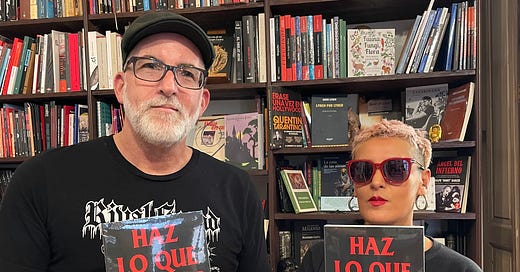


Thank you! It's appalling how bad our transit system is.
Thanks for this, Jim! Some of us are living vicariously through you and your incredible travels.
Have you read Benjamin Labatut, a younger Chilean writer. I highly recommend his novel WHEN WE CEASE TO UNDERSTAND THIS WORLD.